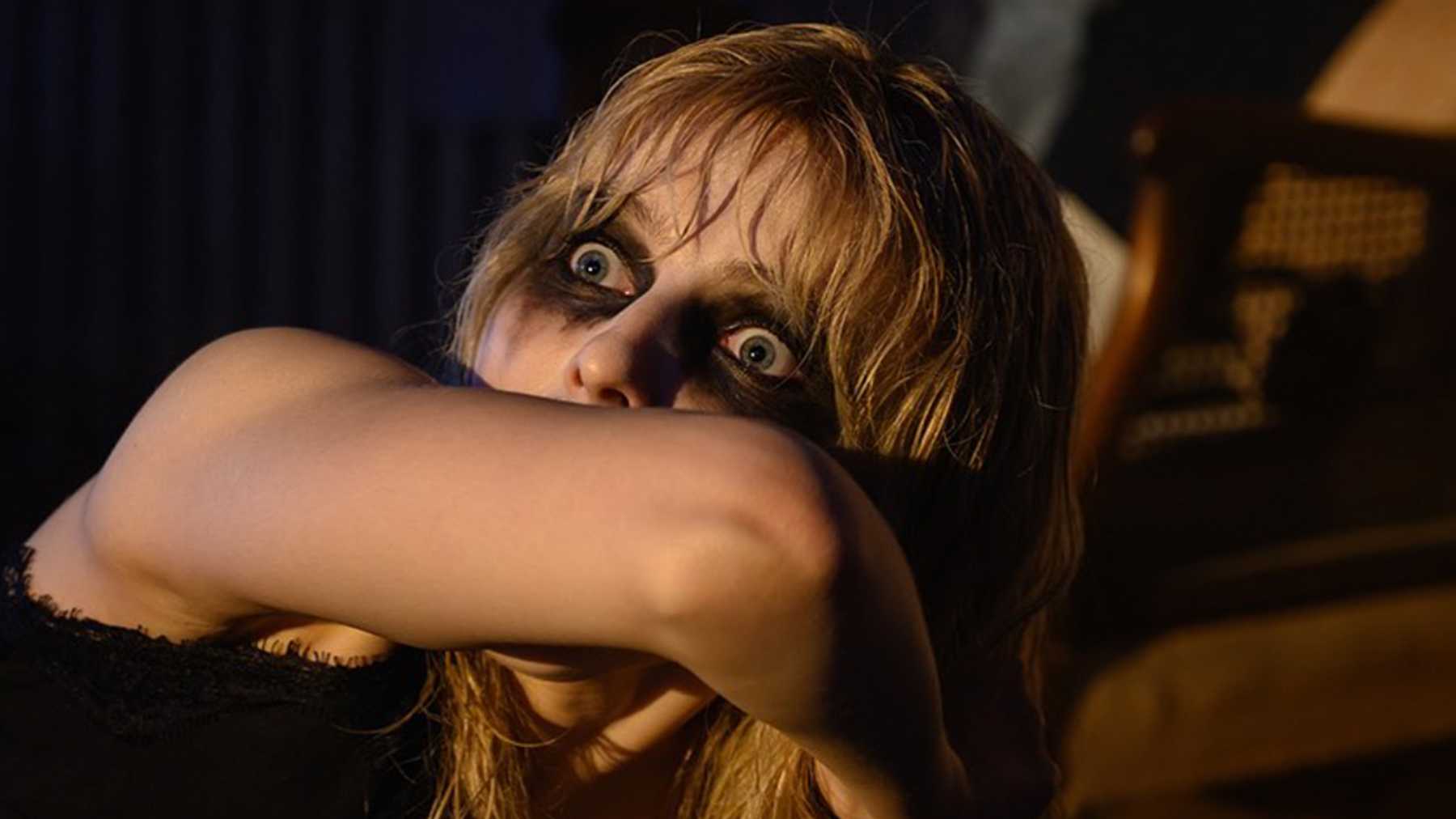What to Watch Verdict
'Last Night in Soho' is blatantly playing with feminist commentary that it doesn’t fully grasp.
Pros
- +
Excellent foundation in the first act
- +
The horror setpieces are well-staged
- +
Edgar Wright continues to be an engaging visual stylist
Cons
- -
The twists undermine the thematic core of the film
- -
The protagonist loses her arc somewhere along the way
- -
It's unclear what, if anything, the film was actually trying to say
Edgar Wright is a visually talented filmmaker, no doubt about it, so it makes sense to be excited for his latest departure from comedy into unironic horror with Last Night in Soho. In many respects, Wright knows how to deliver on the promise of a haunting infused with the stylism of vintage British pop and '60s London nightlife, crafting set pieces that directly confront the dark underbelly of a scene dominated by splashy colors and pretty girls. But underneath the thin veneer of plot twists and faux social commentary is a film shockingly devoid of meaning, a story so wholly committed to building intrigue that its ultimate revelations are at once hollow and self-contradictory, possibly aiming for moral complexity but ultimately falling into a trap of investing more energy in developing atmosphere than resolving its story in an emotionally satisfying manner.
It’s a shame, since the first act is promising to the point that it feels like it almost belongs to another film entirely. As the mousy country girl Ellie (Thomasin McKenzie) follows her collegiate dreams to study fashion in London, she finds that the cutthroat modern attitude of her classmates doesn’t jive with her unassuming love of 1960s pop aesthetic, while the male inhabitants of her new urban local are framed as leering encroachers of personal space. This leads Ellie to search for off-campus housing in a retro-styled room rented out by the elderly Miss Collins (Diana Rigg). But as the neon sign outside her loft’s window flashes, her evening dreams slip into the late '60s as she tracks the ascendancy of the nightclub singer Sandie (Anya-Taylor Joy), watching from the other side of Sandie’s reflection as she is seduced by her manager, Jack (Matt Smith).
This gives way to Ellie attempting to emulate Sandie’s fashions in the modern day, providing a template for her clothing creations as well as a new, more urbanite sense of style. But as Sandie’s propulsive career starts to come into focus as being much more exploitative than first appearances, so too does Ellie’s life start to meld and merge with the horrors of the past. This is both symbolic, as an elderly gentleman (Terence Stamp) takes a keen interest in Ellie’s newfound confidence in a manner that may hint at a shared familiarity with Sandie’s past, as well as extremely literal, as ghosts of the past shatter the reality between Ellie’s dreaming and waking lives, forcing ghastly hallucinations that mirror the darkening depths of Sandie’s fall from grace.
Also: How to watch 'Last Night in Soho'
It’s in these moments of supernatural horror that the film shines brightest, as faceless, shifting figures creep along side alleys and library stacks like a horde of stalkers, scrubbed free of identity beyond their undoubted intent to harm and their anonymity within city crowds. Wright’s fast-cutting horror scenes are incredibly effective, though perhaps less so when he leans heavily on the contortions of psychedelic imagery, which makes it all the more frustrating that the film’s back half ramps up the tension at the expense of its emotional core.
Ellie increasingly becomes a non-figure in her own movie, merely acting as a vessel for the ultimate mystery of what happened to Sandie without ever wholly tying back to her ultimate desire to be a fashion designer. For how much Ellie is established as a nostalgia-obsessed naïf whose obsession with the past is perhaps a bit too rosy, it never translates into a culmination of an arc, especially as the film’s epilogue ties too neat a ribbon on a story that has otherwise been quite messy for her. The intended message might be that she — and by extension, we — have evolved beyond some atrocities of the past that are better left buried, but Wright’s screenplay is so wishy-washy about where its moral center resides that it’s a stretch to infer that Ellie has taken any appreciable growth away from her tribulations.
This only becomes further exacerbated by the film’s somewhat bizarre notion of commentary on the exploitation of women, which waffles so much for the sake of some all-important narrative twists that it fails to say anything coherent. The heightened nature of the haunting lends itself to a sort of didactic moralism that the film at first seems poised to follow through on, but as the nature of the haunting elucidates itself, the messaging becomes so confused that it’s hard to say that it has any sort of perspective on patriarchy than to say that violence perpetrated against anyone is bad. One of the climax’s revelatory moments is a hair’s breadth from an explicit declaration that rapists have feelings too, which might be too nuanced a take to squeeze in within seconds of deathly appendages breaking through the floor to drag our heroine to hell.
Last Night in Soho, more than anything, is an exercise in frustration. The first act is so strong, priming you for a film that explores the evolution of feminine urban aspiration over a 50 year gap, maybe taking off the nostalgia goggles to show that things were not any rosier for women than they are now. But if anything, the film almost posits the opposite, emphasizing the horrors of the past so much that it fails to draw a throughline to the present and, through omission, implies that patriarchal oppression remains rooted in the past.
In the end, it doesn’t matter how clever your mystery is or how good your jump scares are if your story is grasping for a broader point. Not every story needs to engage with that kind of cultural conversation, but Last Night in Soho is so blatantly playing with feminist commentary it doesn’t fully grasp that it becomes woefully apparent when the layers are stripped away for the sake of shock value. There’s a reason runways employ models to show off designer clothes: a mannequin is never going to do the pretty finery the justice it deserves.
Last Night in Soho opens in theaters on Oct. 29.
Leigh Monson has been a professional film critic and writer for six years, with bylines at Birth.Movies.Death., SlashFilm and Polygon. Attorney by day, cinephile by night and delicious snack by mid-afternoon, Leigh loves queer cinema and deconstructing genre tropes. If you like insights into recent films and love stupid puns, you can follow them on Twitter.












